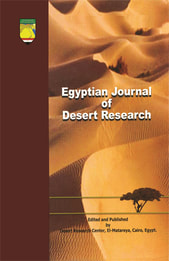 Impact of Compost Tea in Controlling Chocolate Leaf Spot Disease and Soil Microorganisms' Density in Faba Bean (Vicia faba l.) Januray 2018 Egyptian Journal of Desert Research Link Here Living in a desert presents several challenges for agriculture. It's not just the lack of water, but also soils that are low in organic matter, microbial life, and nutrition. The poor growing conditions can lead to weak plants that are susceptible to disease. A research team in Cairo wanted to see how compost tea might help the situation. The farming scientists tested several aspects of tea: They grew disease causing fungi in petri dishes that contained different concentrations of compost tea to see if tea inhibited growth. They also applied tea as a foliar, soil drench, and seed soak to Faba bean plants that were infected with Chocolate Leaf Spot Disease to see if tea reduced disease severity. They looked at growth characteristics of faba bean plants, including dry weight and yield affected by the application of compost tea. They looked at the amount of defense chemicals produced by plants that were administered tea. And they looked at how tea affected the number of microorganisms in the soil. The scholarly gardeners found some very promising results: The Chocolate Spot fungi was inhibited from growing on petri dishes that were treated with compost tea. Foliar spraying tea decreased disease severity by 60%, while soil drenching gave a 50% reduction. Compost tea helped increase almost all measured growth parameters. Soil drenching increased the number of seed pods by 127%, with only a 25% compost tea solution. Soil Drenching caused the weight and number of seeds to increase, this increase led to more than a doubling of the end yield. Microbial life in soil increased by up to 10x as compared to the control. Lastly, the amount of beneficial plant defense promoting chemicals increased in all treatments (by up to 1000%!!!). These internal plant compounds help plants fight off disease naturally. The researchers conclude that Compost Tea could be "suggested as an eco-friendly strategy that could control leaf spot disease". This is yet another study that points to compost tea's ability to help us grow abundant crops while lowering our reliance on synthetic pesticides and fertilizers. To the scientists putting in the time to do these studies, alf šukr!!! (A thousand thanks in Egyptian Arabic).
0 Comments
Your comment will be posted after it is approved.
Leave a Reply. |
Archives
June 2024
Categories
All
|
Contact Us
Why TeaLAB?TeaLAB is committed to helping people and their gardens to become more self- sufficient, healthier, and productive. Grow your sweetest corn, your biggest watermelon, your tallest quinoa, your tastiest tomato, and your happiest you.
TeaLAB was founded to teach people how to garden organically, so that we can become more closely connected with the land. Our goal has been to simplify growing methods so that gardeners have a positive experience in the garden. TeaLAB is where the garden meets the laboratory. From around the world and into your backyard, our products contain ingredients that are sourced both locally and globally. Using methods both ancient and cutting edge, TeaLAB promotes maximum biology. Grow with TeaLAB. |

 RSS Feed
RSS Feed
